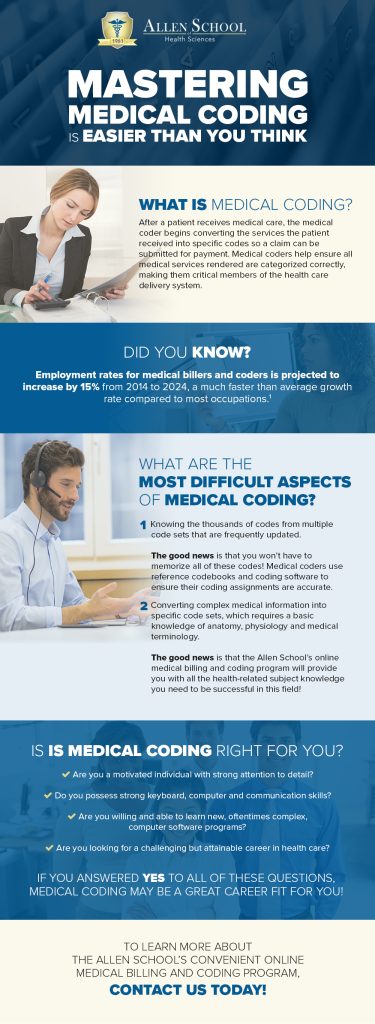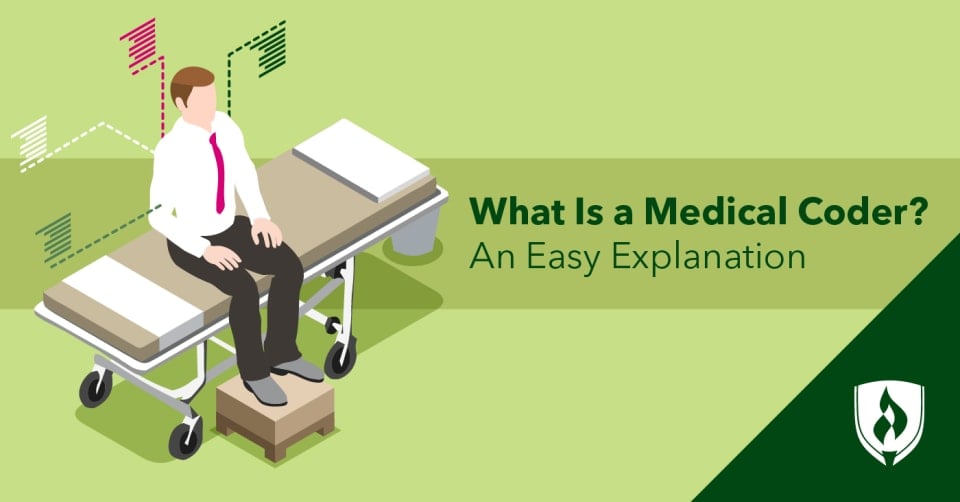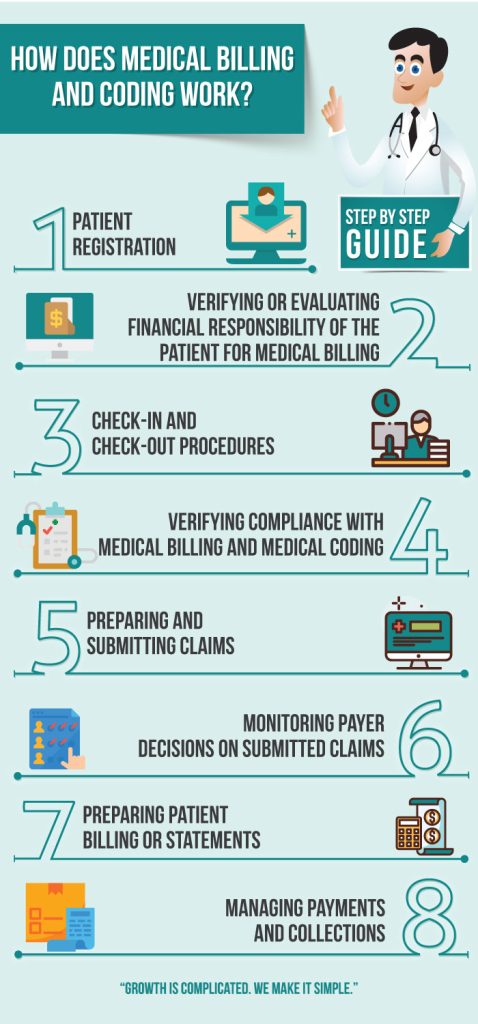In the field of healthcare, the importance of accurate and efficient medical coding cannot be overstated. It serves as the foundation for proper billing, reimbursement, and data collection. However, when it comes to the question of whether medical coding is easy to learn, the answer is not as straightforward as one might hope. While the basic concepts can be grasped relatively quickly, becoming proficient in medical coding requires a dedicated effort to acquire a deep understanding of complex coding systems, medical terminology, and ever-evolving regulations. Embarking on this journey demands commitment and a genuine passion for detail-oriented work, as deciphering and assigning the correct codes can often be a challenging task. In this article, we will explore the intricacies of medical coding, highlighting the factors that contribute to its level of difficulty and providing insights for prospective learners seeking to join this dynamic field.
Overview of Medical Coding
Medical coding is a crucial component of the healthcare industry that plays a vital role in maintaining accurate and organized patient records. It involves the transformation of medical diagnoses, procedures, and treatment into universally recognized codes. These codes enable healthcare providers and insurance companies to accurately document, bill, and track patient services.
What is Medical Coding?
Medical coding is a specialized field within healthcare administration that involves assigning specific codes to medical procedures, diagnoses, and treatments. These codes are derived from various coding systems, such as the International Classification of Diseases (ICD), Current Procedural Terminology (CPT), and Healthcare Common Procedure Coding System (HCPCS). The codes act as a universal language that ensures consistency and accuracy in medical documentation and billing processes.
Importance of Medical Coding
Accurate and detailed medical coding is vital for healthcare providers, insurance companies, and regulatory bodies. It facilitates proper reimbursement for medical services, improves healthcare data analysis, and ensures compliance with legal and regulatory requirements. Medical coding also supports clinical research, decision-making, and the identification of healthcare trends and patterns. Without efficient medical coders, the healthcare system would face significant challenges in maintaining quality care and efficient billing processes.
Roles and Responsibilities of a Medical Coder
Medical coders are responsible for analyzing medical records, extracting relevant information, and assigning appropriate codes to each diagnosis, procedure, and treatment. They must stay up-to-date with the latest coding rules, regulations, and guidelines. Additionally, medical coders collaborate with healthcare providers and billing teams to resolve any coding-related issues or discrepancies. Their attention to detail and accuracy is critical in ensuring proper reimbursement and minimizing potential billing errors.
Learning Medical Coding
Becoming a proficient medical coder requires a specific educational background, comprehensive training, and industry-recognized certifications. Understanding the different coding systems used in healthcare is essential for accurate coding and successful career development.
Relevant Educational Background
While a formal degree is not always required, having a solid educational foundation in medical coding and healthcare administration can significantly benefit aspiring medical coders. Many vocational schools and community colleges offer certificate and associate degree programs focused on medical coding. These programs provide in-depth knowledge of medical terminology, anatomy, pathology, and coding guidelines.
Training and Certification
Specific training programs and certifications are available for individuals seeking a career in medical coding. Organizations such as the American Academy of Professional Coders (AAPC) and the American Health Information Management Association (AHIMA) offer industry-recognized certifications, such as the Certified Professional Coder (CPC) and the Certified Coding Specialist (CCS) credentials. These certifications demonstrate proficiency in medical coding and enhance job prospects within the field.
Different Coding Systems in Healthcare
Medical coding utilizes various coding systems, including the International Classification of Diseases (ICD), Current Procedural Terminology (CPT), and Healthcare Common Procedure Coding System (HCPCS). Understanding the principles, guidelines, and updates associated with each coding system is critical for accurate coding and compliance. Training programs and educational resources focus on teaching the intricacies of each coding system to ensure proficiency and career readiness.

This image is property of www.allenschool.edu.
Key Skills for Medical Coding
To excel in medical coding, individuals must possess a unique set of skills essential for accurate coding and efficient workflow. These skills include attention to detail, analytical and critical thinking, and knowledge of medical terminology and anatomy.
Attention to Detail
Medical coders must pay exceptional attention to detail when reviewing medical records and assigning codes. Each code represents a specific diagnosis, procedure, or treatment, and any errors or omissions can lead to billing discrepancies or even potential patient harm. Meticulous review and careful analysis of medical documentation are critical to ensuring accurate coding and maintaining the integrity of patient records.
Analytical and Critical Thinking
Medical coding involves assessing complex medical information and determining the appropriate codes to accurately represent procedures and diagnoses. Coders must possess strong analytical and critical thinking skills to decipher medical terminology and documentation accurately. This skillset allows medical coders to translate complex medical information into standardized codes consistently.
Knowledge of Medical Terminology and Anatomy
Having a solid foundation in medical terminology and anatomy is vital for successful medical coding. Coders must be familiar with medical terms, abbreviations, and human anatomy to accurately assign codes. An in-depth understanding of medical terminology and anatomy enables coders to identify and interpret complex medical information effectively.
Challenges in Learning Medical Coding
Learning medical coding can present its share of challenges, as it involves complex coding systems, constant updates, and managing workload and time effectively.
Complexity of Coding Systems
The various coding systems used in medical coding can be intricate and require continuous learning. Each coding system has its own unique guidelines, rules, and updates that coders need to stay current with. Navigating through the complexity of different coding systems can be challenging, but it is a fundamental aspect of becoming a proficient medical coder.
Continuous Learning and Updates
The healthcare industry is continually evolving, and medical coding is no exception. New diseases, treatment procedures, and coding guidelines emerge regularly, requiring medical coders to embrace lifelong learning. Staying updated with the latest coding changes and regulations is not only a necessity but also a professional responsibility for medical coders.
Workload and Time Management
Medical coders often face heavy workloads and tight deadlines due to the importance of accurate coding for efficient billing and reimbursement. Balancing the workload while maintaining accuracy and attention to detail can be challenging. Effective time management strategies are crucial to ensure timely completion of coding tasks without compromising quality.

This image is property of www.northwestcareercollege.edu.
Resources for Learning Medical Coding
Various resources are available to support individuals in their journey to learn medical coding. These resources include online training courses, books and study materials, and medical coding associations and forums.
Online Training Courses
Many accredited organizations and educational institutions offer online training courses for medical coding. These courses provide comprehensive training on coding systems, coding guidelines, anatomy, and medical terminology. Online training allows flexibility and convenience for individuals looking to enhance their coding skills at their own pace.
Books and Study Materials
There are numerous textbooks and study materials available that cover medical coding in depth. These resources offer in-depth explanations, coding scenarios, and practice exercises to develop and reinforce coding skills. Medical coding reference books and coding manuals, such as the ICD-10-CM and CPT coding books, are indispensable tools for medical coders.
Medical Coding Associations and Forums
Medical coding associations, such as the American Academy of Professional Coders (AAPC) and the American Health Information Management Association (AHIMA), provide valuable resources and networking opportunities. These associations offer coding seminars, webinars, and conferences that cover the latest coding updates and best practices. Joining coding forums and online communities allows coders to interact with industry professionals and gain insights into real-world coding challenges.
Job Opportunities in Medical Coding
The demand for skilled medical coders is steadily increasing, presenting numerous job opportunities and career growth potential. Understanding the industry demand, job market trends, and career paths is essential for those considering a career in medical coding.
Demand and Industry Growth
The healthcare industry relies on accurate medical coding to ensure proper reimbursement and maintain organized patient records. With advancements in healthcare technology and increased emphasis on data-driven decision-making, the demand for skilled medical coders is projected to grow significantly. The Bureau of Labor Statistics (BLS) predicts that employment in the medical coding field will grow faster than average, providing ample job opportunities for qualified individuals.
Job Market and Salary Potential
The job market for medical coders is diverse, with opportunities in various healthcare settings, such as hospitals, physician clinics, insurance companies, and consulting firms. The salary potential for medical coders is competitive, with factors such as experience, certification, and geographical location influencing earning potential. Entry-level medical coders can expect a solid foundation salary, with opportunities for salary growth as their skills and experience increase.
Career Paths and Advancement
Medical coding offers opportunities for career advancement and specialization. Entry-level coders can advance to roles such as coding supervisors, coding auditors, or coding educators with experience and additional certifications. Individuals may also choose to specialize in specific areas of medical coding, such as anesthesia coding or outpatient coding. Advancing in the field often requires continuous learning, professional development, and staying updated with coding guidelines and industry trends.

This image is property of www.rasmussen.edu.
Factors Influencing the Learning Process
Several factors may influence an individual’s learning process and overall success in medical coding. Understanding these factors can help individuals tailor their learning approach and maximize their potential for success.
Individual Learning Style
Everyone has a unique learning style; some individuals learn best through visual materials, while others prefer hands-on exercises or auditory methods. Identifying one’s preferred learning style can greatly enhance the learning experience and retention of medical coding knowledge. It is essential to explore different learning resources and techniques to find the most effective approach.
Prior Experience in Healthcare
Previous experience or exposure to the healthcare field can provide a strong foundation for learning medical coding. Familiarity with medical terminology, common diagnoses, and healthcare practices can accelerate the learning process. However, prior healthcare experience is not a prerequisite for learning medical coding, as comprehensive training and education can compensate for any knowledge gaps.
Quality of Education and Training
The quality of education and training received plays a crucial role in the learning process. Choosing reputable educational institutions, accredited training programs, and recognized certifications ensures that the learning materials and curriculum meet industry standards. Investing in high-quality education and training is an investment in one’s future career as a medical coder.
Success Tips for Learning Medical Coding
Learning medical coding can be challenging; however, adopting effective strategies can enhance the learning experience and lead to success.
Setting Realistic Goals
Setting clear and achievable goals is vital when learning medical coding. Establishing short-term goals, such as completing specific coursework or mastering a particular coding system, keeps individuals motivated and focused. Long-term goals, such as obtaining industry-recognized certifications, provide a sense of direction and purpose in the learning journey.
Developing Effective Study Habits
Developing and maintaining effective study habits is crucial for successful learning in medical coding. Creating a dedicated study space, establishing a regular study schedule, and breaking down complex topics into manageable chunks can enhance knowledge retention and comprehension. Consistent practice and review of coding scenarios and exercises contribute to a solid foundation in medical coding.
Seeking Guidance and Mentorship
Seeking guidance from experienced medical coders or mentors in the field can provide invaluable support and insights. Mentors can offer guidance, answer questions, and share real-world experiences and challenges. Joining professional coding associations and participating in coding forums or online communities allows individuals to connect with industry professionals and benefit from their expertise.
Personal Attributes for Successful Medical Coders
To excel in medical coding, certain personal attributes are essential. Coders must possess ethics and integrity, attention to detail, and effective communication skills.
Ethics and Integrity
Medical coders handle sensitive patient information and are entrusted with maintaining the privacy and confidentiality of medical records. Upholding ethical standards and adhering to professional guidelines and regulations is crucial. Demonstrating integrity and ethical conduct builds trust within the healthcare industry and ensures the highest level of patient care.
Attention to Detail
Attention to detail is a fundamental attribute for successful medical coders. The ability to meticulously review medical documentation and accurately assign codes is essential to maintain the integrity of patient records and facilitate proper reimbursement. Thorough attention to detail minimizes coding errors and reduces the likelihood of billing discrepancies.
Effective Communication Skills
Effective communication skills are vital in the healthcare field, including medical coding. Medical coders collaborate with healthcare providers, billing teams, and insurance companies, communicating coding-related issues, clarifying documentation, and resolving coding discrepancies. Clear and concise communication ensures accurate coding and promotes efficient workflow within the healthcare system.
Conclusion
Medical coding is a critical field within healthcare administration that plays a pivotal role in accurate documentation, billing, and tracking of patient services. Learning medical coding requires a solid educational background, comprehensive training, and proficiency in various coding systems. Success in medical coding is dependent on key skills such as attention to detail, analytical thinking, and knowledge of medical terminology and anatomy. Challenges in learning medical coding include the complexity of coding systems, continuous learning requirements, and effective time management. Resources such as online training courses, books, and coding associations support the learning process. Job opportunities in medical coding are growing, with competitive salary potential and opportunities for career advancement. Factors influencing the learning process include individual learning style, prior healthcare experience, and the quality of education and training. Success tips include setting realistic goals, developing effective study habits, and seeking guidance and mentorship. Personal attributes for successful medical coders include ethics and integrity, attention to detail, and effective communication skills. With dedication, continuous learning, and the acquisition of relevant skills and knowledge, aspiring medical coders can embark on a rewarding and fulfilling career in medical coding.

This image is property of greensensebilling.com.
